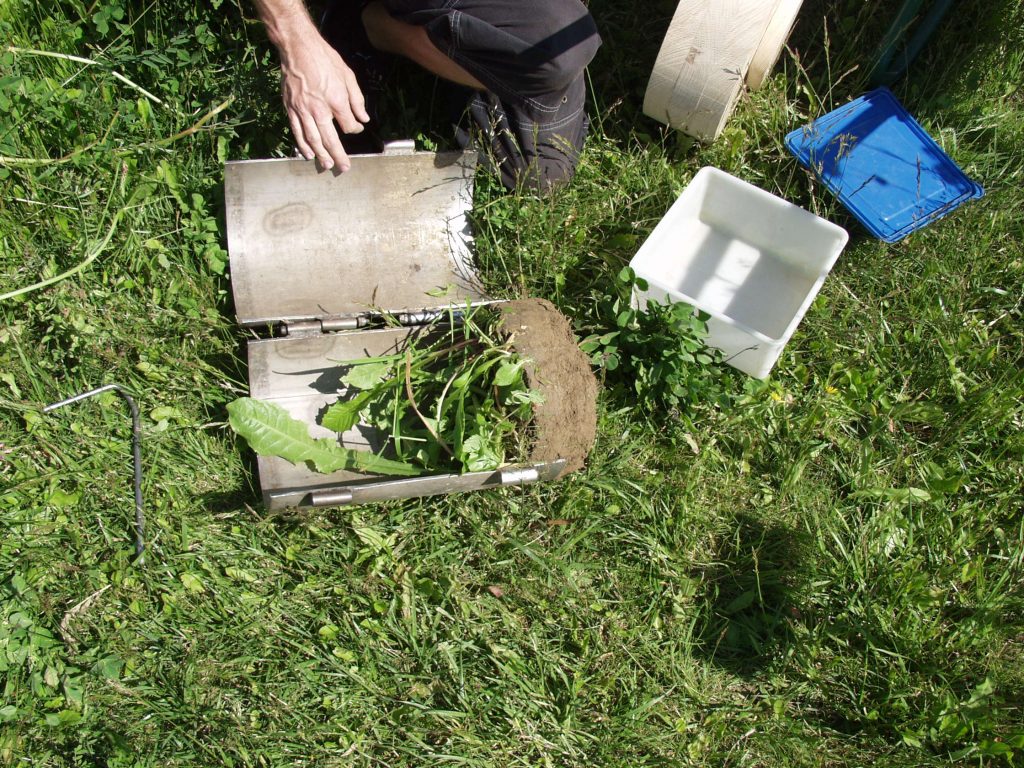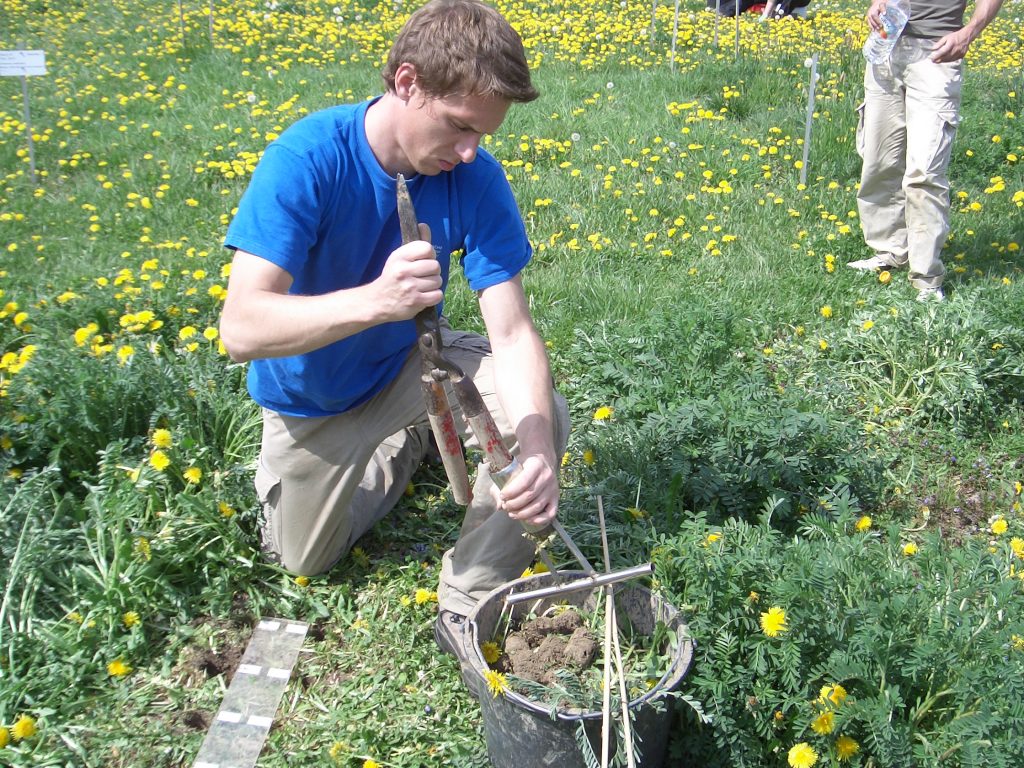Soil food webs
Multi-trophic energy fluxes in soil food webs along plant diversity–productivity gradients
Principle Investigators: Prof. Dr. Ulrich Brose, Jena/Leipzig; Prof. Dr. Stefan Scheu, Göttingen; Prof. Dr. Nico Eisenhauer, Leipzig

Jena/Leipzig
Principle Investigator
+49 341 97 33205

Göttingen
Principle Investigator
+49 (0) 551 39 25445

Leipzig
Principle Investigator
+49 (0) 341 97 33200

Leipzig
PhD student

Plants interact with other organisms in many ways as depicted by complex food webs. Changes in the strength of the relationship between biodiversity (e.g., the number of plant species) and ecosystem functioning (e.g., plant biomass) may be caused by modifications of these interactions. Over time, high plant diversity may foster energy fluxes through beneficial interactions with other organisms, whereas low plant diversity may favour interactions detrimentally affecting energy fluxes.

In the proposed project, we aim at systematically addressing (1) how energy fluxes through soil food webs change along a gradient in plant diversity, and (2) how these relationships change with soil history and plant history. We will start by testing for effects of plant diversity and soil history on the strength of food-web energy fluxes in the communities of the Field Experiment (WP1). This will be complemented by analyses how differences in plant history and soil history change these effects under the controlled conditions of the Ecotron (WP2). Finally, the structure of the soil food webs in the Field Experiment and the Ecotron will be analyzed in more taxonomic detail to allow for the identification of keystone populations that drive the above-mentioned modifications in energy fluxes (WP3). Together, these work packages will provide unique insights into the energetic structure of soil food webs as affected by plant diversity, soil history, and plant history. Differences in energy fluxes to belowground consumers will result in significant feedback effects that will be key to mechanistically explain biodiversity-ecosystem function relationships through multi-trophic interactions.
